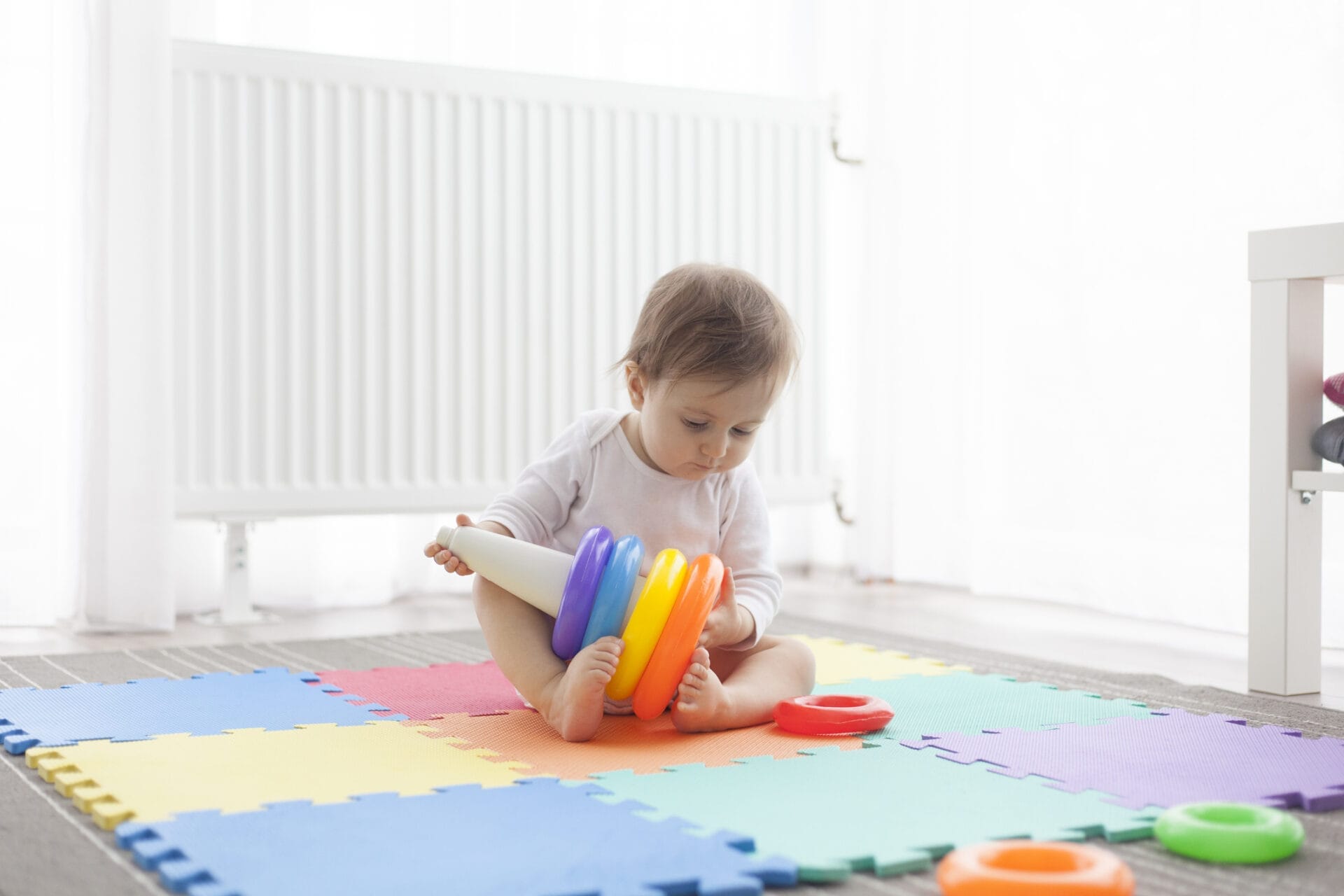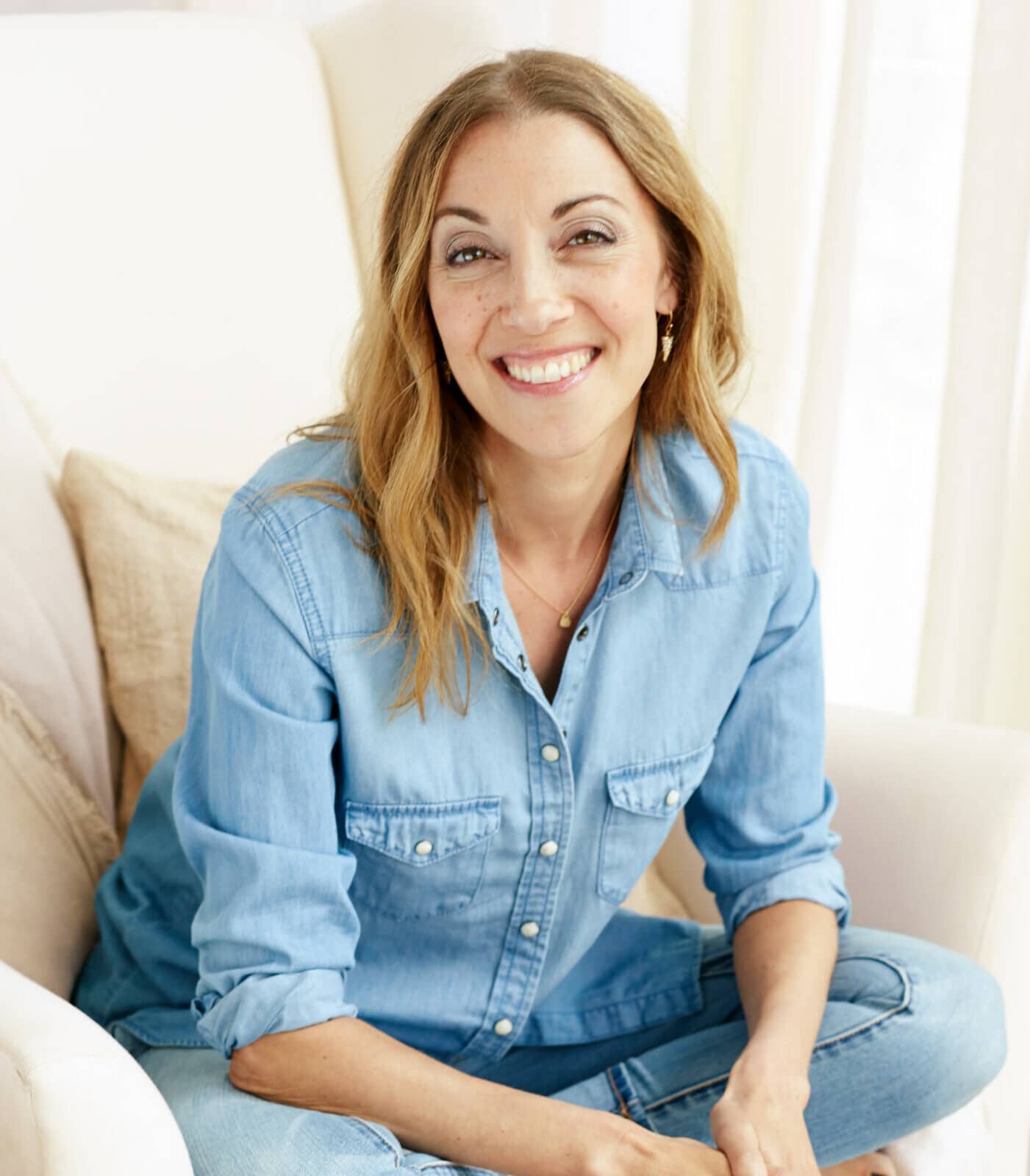We are proud to say that these posts are not sponsored. Our editorial team of Bobbie moms and writers personally select each featured product. If you buy something through our links, we may earn an affiliate commission, at no cost to you.
Rainbows were never my thing. I’m not the nature-loving type, and I definitely am not the gal to see every day as rainbows and butterflies (I thank my female relatives on my mom’s side for my glass-half-empty mentality. Thanks, ladies). Black and white is my palette of choice, and color makes me nervous, as do a lot of things.
But as I embarked on a three-plus-year-long infertility journey in a quest to have my second child, I started to see rainbows in a different light. This multicolored arc that remains in the sky after a storm is no longer just a semi-rare spectacle when I look out my window, nor does it still conjure up memories of my teen years collecting Lisa Frank school supplies. The rainbow has become a symbol of hope for me, something that’s kept me going in my years of trying to conceive, and one that I anticipate will have a new significance in my life moving forward as I prepare for the birth of my second child. And that’s all thanks to the popular concept of a “rainbow baby.”
What Is a Rainbow Baby?
Rainbow baby is the term used to describe a baby born or adopted after the parents lose a child or pregnancy to miscarriage, stillbirth, or neonatal death. The rainbow baby meaning signifies the rainbow that appears in the sky after a rainstorm, correlating to getting your living, healthy baby after a dark and gloomy time in your life.
Rainbow baby is not an official medical term, but rather a common phrase coined and used by patients, doctors, fertility advocates, and more, especially on social media. (Case in point: The #rainbowbaby hashtag has been used more than 2.4 million times on Instagram). The rainbow itself (and its emoji!) has become a symbol of hope for grieving parents, myself included.
About 10 to 20 percent of known pregnancies end in miscarriage, which is a loss before 20 weeks of gestation, and about 1 in 160 births end in stillbirth. I’ve experienced three different types of losses over three consecutive years: a miscarriage after an IUI (2021), a termination after getting pregnant “spontaneously”—that’s the word we use in the fertility world that means conceived without assisted reproductive technologies (ART) like IVF (2022)—and an ectopic pregnancy, meaning the embryo implanted in my tube rather than my uterus, after my first frozen embryo transfer in IVF (2023).
So many loss moms and dads like myself find meaning in this phrase, but the idea of a rainbow baby may not resonate with everyone. Some parents may see a rainbow baby as a negative thing, like this baby only exists as a sequel or replacement to the one(s) you lost, or that the term focuses too much on that baby’s death rather than their short life. As with loss and grief, everyone interprets such things differently, so if referring to your baby after loss as your rainbow baby just doesn’t work for you, there’s zero shame in that.
What Is a Sunshine Baby vs Rainbow Baby?
A sunshine baby (vs. a rainbow baby) is the term used to describe the baby born healthy before losing a pregnancy or baby. A sunshine baby is a source of light and a hopeful reminder that you can in fact conceive, carry, and deliver a healthy child.
This term has had special significance for me personally as a mother whose first child, my sunshine baby boy, was conceived relatively uneventfully, while my quest to baby number two was much more difficult. Thoughts that often ran through my head after being diagnosed with secondary infertility were, “My body has done this before and I have my sunshine baby to show for it…why isn’t it cooperating this time?”
What Is a Golden Rainbow Baby?
Another related term is golden rainbow baby, which is the first baby born after a rainbow baby. The golden rainbow baby implies that having two healthy babies in a row is like reaching the pot of gold at the end of the rainbow.
Is It Special To Be a Rainbow Baby?
Any baby is special, of course, but it’s extra special to be a rainbow baby. It depends on the parents’ preference and what they choose to divulge, but many rainbow babies may grow up knowing how wanted they were and how hard their parents worked to get them here after many struggles and months or years of trying to conceive.
Personally, I plan for my future rainbow babe to know exactly how much effort (and money) it took to get her here safe and healthy. I’ll be shouting it from the rooftops for the rest of our lives, probably, and won’t be shy about buying all the rainbow onesies and nursery decor so everyone else gets it too. I’m already that girl who, after someone sees my bump and says “congrats!” I make sure they know this is an IVF baby. Maybe I’ll start showing them the print-out my fertility clinic gave me of her embryo next?
How Old Is the Term Rainbow Baby?
The term rainbow baby started with a quote by Shannon L. Adler, “After every storm, there is a rainbow.” The term first appeared in its current context in a 2008 book titled Our Heartbreaking Choices: Forty-Six Women Share Their Stories of Interrupting a Much-Wanted Pregnancy, written by Christie Brooks.
The concept of rainbow baby began gaining steam on mom forums and online support groups, and helped destigmatize a taboo topic. By 2018, “rainbow baby” went more mainstream and made it to the slang version of dictionary.com, though it has yet to appear in the official dictionary. Now, it’s commonly used on social media, most of the time in pregnancy or birth announcements.
Rainbow Baby Day
National Rainbow Baby Day is celebrated each year on August 22, and was founded by grieving mom Alexis Delchiaro and her organization, What The Fertility, in 2018. That late-summer date is the birthdate of Alexis’ daughter, Gianna; Alexis also has a son, Grant, via adoption.
National Rainbow Baby Day is a day “to celebrate the rainbow babies, remember the babies who came before them, and honor each parents’ journey.”
There’s no one way to celebrate your rainbow baby and/or commemorate the babies that died, because each journey is personal and unique. Still, here are a few ideas that may inspire you:
- Commemorate the babies you lost by releasing balloons or lighting candles in their honor
- Post about your rainbow baby on social media
- Share your story in a support group or therapy session
- Wear technicolor clothing on the day-of (or the anniversary of their birthday)
- Plan a family photoshoot with a rainbow theme
- Donate money or volunteer your time to an organization devoted to infertility awareness and/or child loss
Expecting a Rainbow Baby
I can attest that pregnancy after loss is no joke; expecting a rainbow baby brings with it a whole slew of unique emotions that mothers who’ve never experienced loss can’t quite understand; the constant fear that something will go wrong, the “scanxiety” before each pregnancy ultrasound, even guilt that you’re on your way to conquering infertility when so many others are still in the thick of it.
Still, the silver lining is that medically speaking, most women who lose a pregnancy or child will go on to have a healthy, living baby (or babies), whether that’s through pregnancy, surrogacy, or adoption. The emotional toll is harder than the physical one, but little by little, the sun will break through the clouds more and more with each passing day (or month, more realistically speaking).
Grieving a Loss
There’s no handbook for grieving a loss of the baby that you’ll never get to meet. And most parents who are lucky enough to get their rainbow baby after a miscarriage or late-term loss can attest that the rainbow won’t take away from the pain you felt. The storm has undeniably wrecked your emotional state, and unfortunately, it’ll take time to recover.
You may even accidentally call your rainbow baby by the name of a baby you lost. Maybe you can’t get over the fact that this baby wouldn’t even be here if it hadn’t been for what you’d been through with previous pregnancies. Holidays may be hard because you envisioned your family looking differently. But take it from someone who’s been there, done that; you will eventually return to your new normal. It’s not lost on me that not everyone gets a take-home baby at the end of fertility treatments. Though one way or another, life will resume, and the grief will subside.
I plan to celebrate my rainbow baby on the way every day, but especially during National Infertility Awareness Week, April 21-27 2024, a movement started in 1989 by RESOLVE, the National Infertility Association. It’s a time when medical professionals, advocates, and those of us in the trenches of infertility attempt to reduce the stigma and educate the general population about it, both online and IRL, and advocate for better resources and more awareness.
Having a Rainbow Baby
Maybe this is your first time hearing the term rainbow baby, you’re hopeful that you’ll welcome your own rainbow baby, or you have friends or family who’ve experienced pregnancy loss and you want to understand them a little better. Either way, now you have a better understanding of the term you may see used so commonly on social media. And hey, look at that! The awareness and education start… now.


